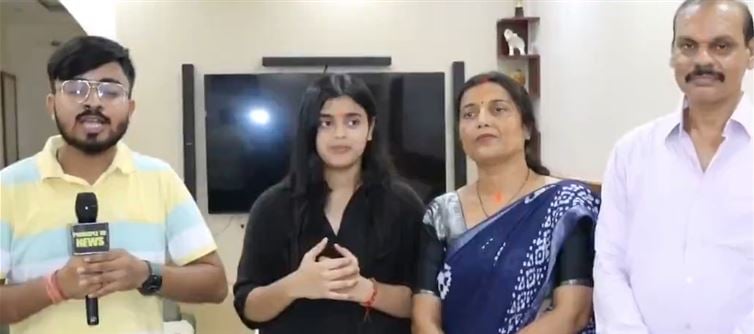
A 14-year-old girl from bihar has recently been celebrated for translating the Hanuman Chalisa into 234 languages within six months, a feat that has drawn both admiration and criticism. On the surface, the achievement appears remarkable—especially considering her age and the dedication it might have required. Translating a revered text into so many languages sounds like an extraordinary intellectual and spiritual effort, one that has earned her recognition in media circles and from admirers of devotional literature.
However, in today’s age of technology, this so-called achievement raises questions about substance versus optics. With the availability of powerful translation tools and AI platforms, rendering a text into hundreds of languages can be accomplished in mere minutes. What would once have been considered a Herculean task of linguistic scholarship now takes only a few clicks. This makes it difficult to assess whether her effort represents genuine linguistic expertise, or simply the use of existing online tools packaged as a historic milestone.
The larger issue lies in how society tends to glorify mediocrity by labeling easily achievable acts as “historic.” True greatness comes from originality, critical thought, and meaningful contribution—qualities that extend beyond merely compiling machine-generated translations. Instead of prematurely celebrating such efforts, it would be far more valuable to encourage young minds to engage in deeper, creative, or analytical pursuits that cannot be replicated by technology in a matter of minutes. Otherwise, the line between genuine brilliance and superficial accomplishment becomes dangerously blurred.
However, in today’s age of technology, this so-called achievement raises questions about substance versus optics. With the availability of powerful translation tools and AI platforms, rendering a text into hundreds of languages can be accomplished in mere minutes. What would once have been considered a Herculean task of linguistic scholarship now takes only a few clicks. This makes it difficult to assess whether her effort represents genuine linguistic expertise, or simply the use of existing online tools packaged as a historic milestone.
The larger issue lies in how society tends to glorify mediocrity by labeling easily achievable acts as “historic.” True greatness comes from originality, critical thought, and meaningful contribution—qualities that extend beyond merely compiling machine-generated translations. Instead of prematurely celebrating such efforts, it would be far more valuable to encourage young minds to engage in deeper, creative, or analytical pursuits that cannot be replicated by technology in a matter of minutes. Otherwise, the line between genuine brilliance and superficial accomplishment becomes dangerously blurred.




 click and follow Indiaherald WhatsApp channel
click and follow Indiaherald WhatsApp channel